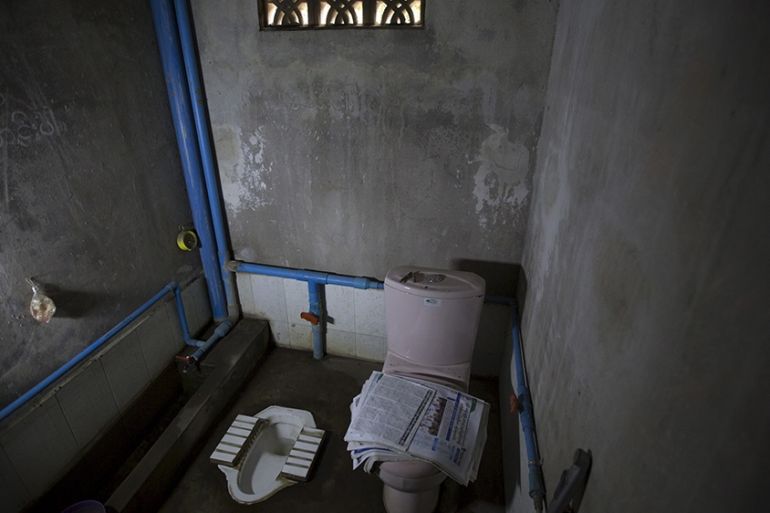Toilets: The economic impact of sanitation
More than 4 billion people lack access to proper sanitation, and that limits economic growth.

A lack of safe and accessible toilets in some regions is costing the global economy billions of dollars.
The compounding impact of poor sanitation can shave percentage points off gross domestic product (GPD) in developing countires. With no or poor access to toilets, young girls may be less likely to attend school during menstruation. Delayed urination and defication can also lead to health problems that may reduce earning potential or even cause premature deaths.
Keep reading
list of 4 itemsAbout 282 million people faced acute hunger last year: UN-led report
North Korea conducts test on new ‘super-large warhead’: State media
‘Blatant aggression’: Reactions to US veto of Palestine’s UN membership bid
According to the United Nations sanitation-related loss of productivity – such as missed work or school days – costs some countries up to five percent of GDP.
Data from the World Bank‘s Water and Sanitation Program shows that in emerging and developing economies such as Bangladesh, India and Cambodia, the cost of poor sanitation was equivalent to more than six percent of GDP in each of these countries.
However, the challenge of proper sanitation also presents an economic opportunity, which in turn can improve the lives of billions.
The World Health Organization (WHO) estimates that for every one dollar invested in water and toilets, the return is four dollars in saved medical costs and increased productivity.
A fundamental right
Sustainable Development Goal (SDG) 6 stresses clean water and sanitation for all. But current data shows that today, there are 4.2 billion people around the world without safely managed sanitation services.
According to Rio Hada, Team Leader, Economic, Social and Cultural Rights of the Office of the UN High Commissioner for Human Rights (OHCHR), raising awareness is key to galvanizing conversations and action around the necessity of safe and accessible toilets.
“Having access to a toilet is a fundamental human right, that applies to everyone, whoever they are, wherever they live,” Hada told Al Jazeera. “This recognition of sanitation as a human right, confirmed by the UN General Assembly in 2015, brings with it a greater sense of responsibility and a legal obligation on governments to progressively realize this right for their citizens.”
Today, many people without adequate sanitation live in Sub-Saharan Africa and South Asia, as well as other areas such as small island countries.
According to UN-Water, poor and marginalized people without safe and proper sanitation often face many forms of discrimination and can be left behind as they try to manage or improve their sanitation facilities.
On this World Toilet Day, OHCHR is stressing the importance of accessible toilets and the consequences facing the billions of people living without access to one.